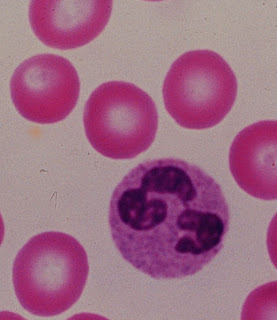.jpg) We all know about the p-ANCA and the c-ANCA, which are antibodies against either myeloperoxidase (MPO) or proteinase-3 (PR3), respectively. Now get ready for a 3rd ANCA subtype, an antibody against LAMP-2!
We all know about the p-ANCA and the c-ANCA, which are antibodies against either myeloperoxidase (MPO) or proteinase-3 (PR3), respectively. Now get ready for a 3rd ANCA subtype, an antibody against LAMP-2!In a recent Nature Medicine article by Kain et al, the investigators show that in most patients with the disease focal necrotizing glomerulonephritis FNGN)--a severe form of pauci-immune glomerulonephritis with positive ANCA titers--there are antibodies against an epitope of human LAMP-2. Evidence for its pathogenicity is convincing: when either the patient's antibody OR a designed monoclonal antibody raised against LAMP-2 is injected into rats, they develop glomerulonephritis.
Interestingly, the LAMP-2 antigen is highly homologous to a bacterial antigen termed FimH. The authors' hypothesis is that patients who develop bacterial infection with an organism containing FimH develop antibodies against this antigen which are also cross-reactive with LAMP-2, expressed on neutrophils. This is another example of "molecular mimicry" which may also be found in conditions such as rheumatic heart disease.
















No comments:
Post a Comment